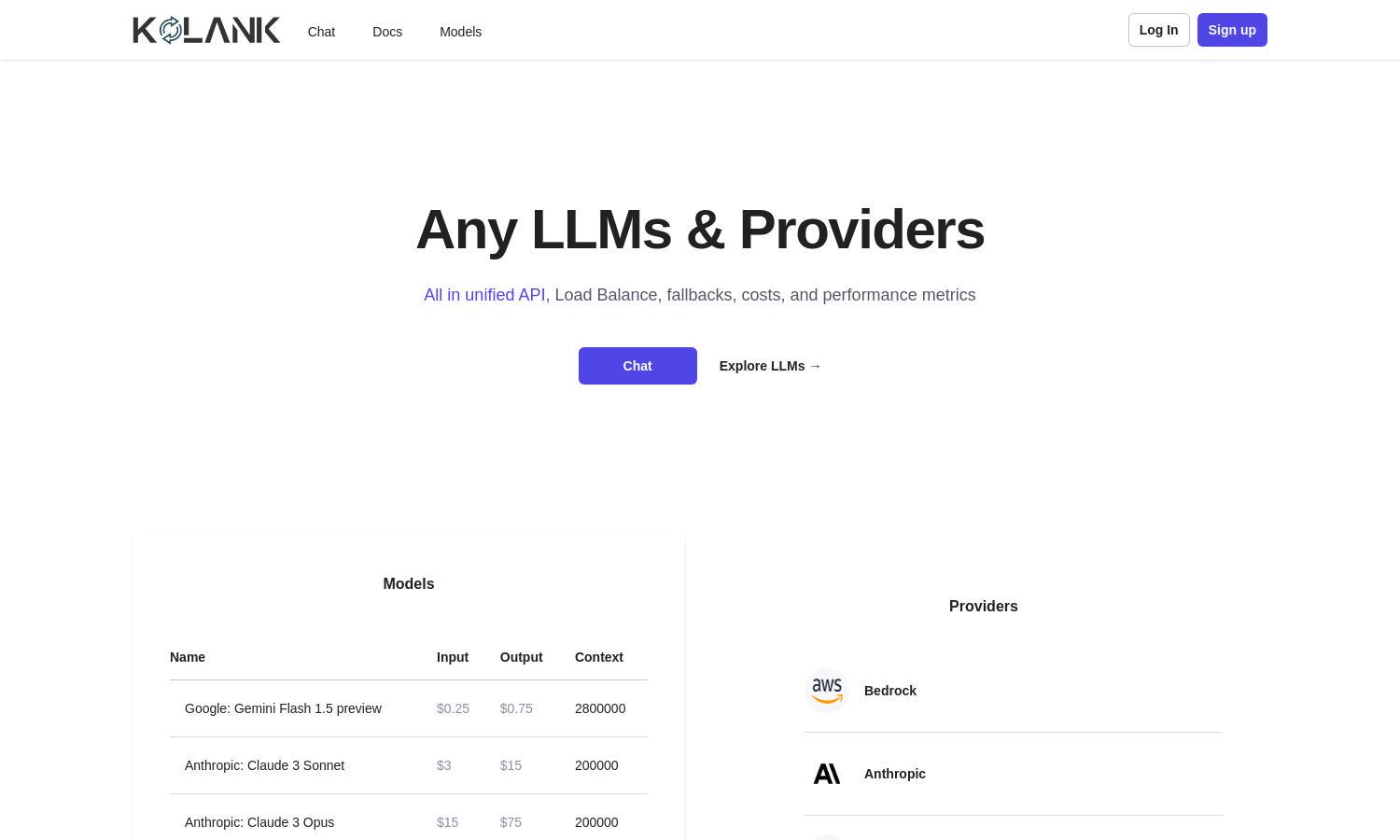Kolank

About Kolank
Kolank is an innovative platform designed for developers and businesses to compare and select LLMs. Users can effortlessly navigate through models based on price, performance, and output metrics. With its user-friendly API and robust tracking features, Kolank solves the complexities of choosing optimal AI resources efficiently.
Kolank offers flexible pricing plans, including pay-per-use and subscription tiers, catering to varied user needs. Each plan provides access to a range of LLMs with competitive pricing. Upgrading unlocks premium features, ensuring users get the best value for their investment in AI technology.
Kolank's user interface is designed for seamless navigation, featuring an intuitive layout that enhances the browsing experience. With user-friendly design elements and easy access to key features, Kolank ensures that users can efficiently utilize the platform to meet their AI needs without confusion.
How Kolank works
Users start by signing up for a Kolank account, granting access to the unified API. After onboarding, they can easily compare various LLMs using filters for price, performance, and output metrics. The platform’s design facilitates quick requests, allowing users to select and interact with preferred models effortlessly.
Key Features for Kolank
Unified API for LLM Comparison
Kolank's unified API enables users to compare multiple LLMs effortlessly, focusing on price, latency, and performance metrics. This unique feature helps businesses find the most suitable AI model, ensuring they opt for solutions that align perfectly with their needs, thus enhancing productivity and cost-effectiveness.
Transparency & Tracking
Kolank provides robust transparency and tracking features, allowing users to monitor API calls and token usage efficiently. This functionality ensures businesses can manage their expenses effectively, making informed decisions based on real-time data, ultimately leading to optimized investments in AI resources.
Load Balancing & Fallbacks
Kolank implements advanced load balancing and fallback mechanisms that prioritize stable, cost-effective providers. This ensures high availability and reliability, allowing users to maintain performance standards while minimizing costs, thereby enhancing user satisfaction and trust in the platform's capabilities.
You may also like:








